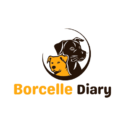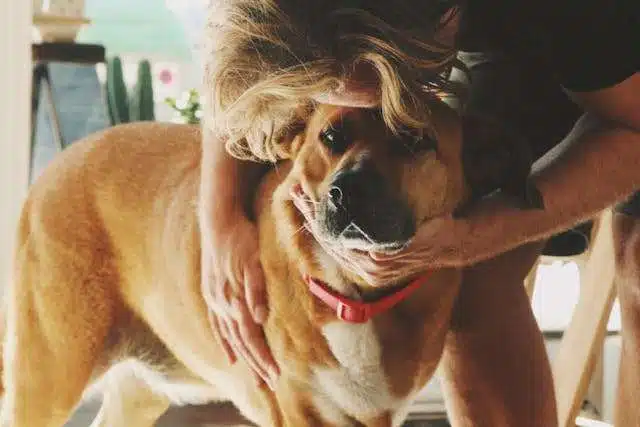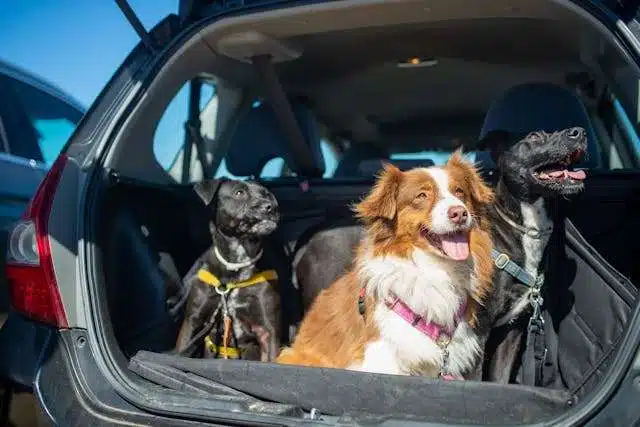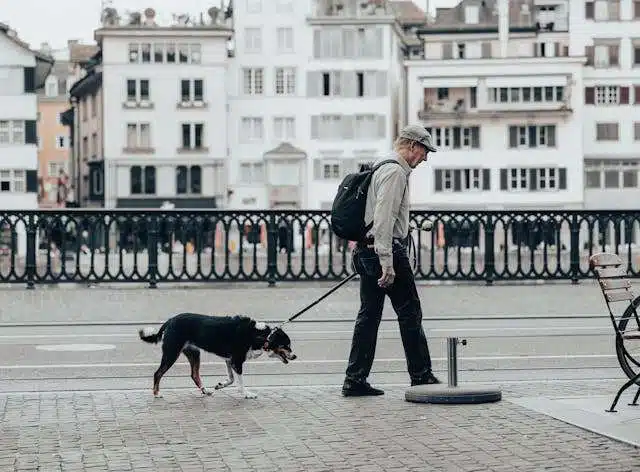Dogs who reverse sneeze are exactly what they sound like. Your dog is sneezing in reverse. During a regular sneeze, your dog rapidly expels air from its nose. In a reverse sneeze, they rapidly inhale air. Despite these differences, both regular and reverse sneezing are about as dangerous for your dog as your last sneeze was for you. Although it’s sometimes scary, a reverse sneezing episode will typically pass on its own in less than a minute. In this article, we’ll learn what a reverse sneeze is along with what causes it.
Table of Contents
ToggleWhat Happens In a Reverse Sneeze In Dogs?
As your dog reverse sneezes, something irritates their upper airways, and their body responds in one of three ways: sneezing, coughing, or reverse sneezing. A reverse sneeze can also occur when your dog becomes overly excited or stressed. When your dog reverse sneezes, they’ll stop what they’re doing, stand still, extend their head and neck, and emit a loud, snorting sound. It may seem like your dog is in distress, but reverse sneezing is usually nothing to worry about. But to rule out a more serious issue, visit your veterinarian and have your dog officially diagnosed the first time you see them reverse sneeze. The same goes if your dog’s reverse sneezing episodes last more than a minute or happen very frequently.
Common Causes of Dog Reverse Sneeze
The exact reason dogs reverse sneeze is unknown, but it’s extremely common, and there are several potential contributing factors, including breed disposition.
Breeds Disposition
There are certain dogs who are more likely to experience reverse sneezing than others. It’s more common in smaller dogs and brachycephalic breeds, which have a shortened nasal passage and an elongated soft palate. Brachycephalic breeds include American Bulldogs, Boston Terriers, Boxers, Cavalier King Charles Spaniels, Chow Chows, English Bulldogs, French Bulldogs, Pugs, Shih Tzus, and many more.
Foreign Bodies
Foreign bodies, like grass or foxtails, can cause irritation and lead to a reverse sneezing fit.
Allergens
Allergens, such as dust, dander, and pollen, can enter your dog’s nasal passages, causing irritation and reverse sneezing. Food or parasites can also be the culprit. To figure out what’s causing your pup’s allergies, bring your dog for a veterinary exam and ask your vet if allergy testing can help. You can also support your pup’s immune system with an allergy supplement for dogs.
Over-Excitement
Some dogs begin to reverse sneezing when they get too worked up or during strenuous exercise.
Exercise Intolerance
If your dog experiences this, stop immediately, give them plenty of water, and bring them inside to calm down. Next time you head out, try a slower pace.
Respiratory Infection
An infection in your dog’s respiratory tract, like rhinitis or sinusitis, can also lead to reverse sneezing. These conditions require a veterinary exam to diagnose.
Nasal Mites
Nasal mites can take up residence in your dog’s nose and cause reverse sneezing. Most nasal mites can be treated with an anti-parasitic medication from your veterinarian.
Nasal Polyps
Growths in your dog’s nasal passage, such as nasal polyps, can also cause reverse sneezing and nasal discharge. Bring your pup for a veterinary exam if they’re showing any nasal discharge or chronic reverse sneezing.
While most reverse sneezing isn’t a cause for concern, some underlying causes will require veterinary care, so it’s important to consult your vet when you first notice your dog reverse sneeze.



